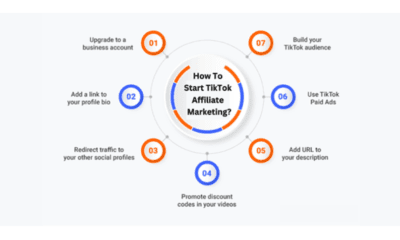Technology
Elevate Your Business with Digital Marketing Agency in Houston

In the competitive business landscape of Houston, leveraging digital marketing services is crucial for success. As a dynamic and diverse city, Houston hosts a myriad of industries from energy and healthcare to technology and manufacturing. In such an environment, businesses must adopt comprehensive digital marketing strategies to stand out. This blog explores the significance of digital marketing in Houston and why partnering with the best digital marketing agency in Houston can transform your business.
The Power of Digital Marketing Services
Digital marketing services encompass a variety of strategies aimed at promoting businesses online. These services include Search Engine Optimization (SEO), Pay-Per-Click (PPC) advertising, social media marketing, content marketing, email marketing, and more. By effectively utilizing these services, businesses can increase their online visibility, drive targeted traffic to their websites, and ultimately boost sales and growth.
In Houston, where competition is fierce, having a robust digital marketing strategy is vital. A well-executed digital marketing plan ensures that your business reaches the right audience at the right time, turning potential customers into loyal clients.
Why Choose a Digital Marketing Agency Near Me?
Partnering with a local digital marketing agency near you offers numerous advantages. These agencies have a deep understanding of the local market and can tailor strategies to meet the specific needs of Houston-based businesses. Here are some benefits of working with a digital marketing agency near you:
- Local Market Expertise: A local digital marketing agency in Houston understands the unique dynamics of the local market. They are familiar with local consumer behavior, industry trends, and competition, which allows them to craft targeted and effective marketing strategies.
- Personalized Service: Working with a nearby agency means you can benefit from face-to-face meetings and personalized service. This level of interaction fosters better communication, understanding, and collaboration, ensuring that your marketing campaigns align with your business goals.
- Quick Response Time: A local agency can provide prompt support and quick turnaround times. Whether you need to address an urgent issue or want to discuss campaign performance, being in the same time zone facilitates efficient communication.
- Community Connections: Local agencies often have strong connections within the community. These connections can be leveraged to build partnerships, gain local insights, and enhance your brand’s presence in the Houston area.
Selecting the Best Digital Marketing Agency in Houston
With numerous digital marketing agencies in Houston, choosing the best one for your business can be challenging. Here are some key factors to consider when selecting a digital marketing agency:
- Reputation and Reviews: Research the agency’s reputation and read client reviews. Positive testimonials and case studies can provide valuable insights into the agency’s performance and client satisfaction.
- Comprehensive Services: The best digital marketing agencies offer a wide range of services, including SEO, PPC, social media marketing, content creation, email marketing, and web design. This ensures that all aspects of your digital marketing needs are covered under one roof.
- Industry Experience: Look for an agency with experience in your industry. An agency familiar with your market’s unique challenges and opportunities can develop more effective strategies.
- Customized Strategies: Every business is different. The best agencies take the time to understand your specific goals and tailor their services to meet your needs.
- Transparent Communication: Effective communication is crucial for a successful partnership. Choose an agency that provides regular updates, clear reports, and is responsive to your questions and concerns.
Top Digital Marketing Agencies in Houston
Houston boasts several top digital marketing agencies known for delivering exceptional results. Here are some of the leading digital marketing agencies in the city:
- AdHere Inc.: AdHere Inc. is celebrated for its innovative and data-driven approach. They offer a comprehensive suite of digital marketing services, including SEO, PPC, social media marketing, and web design. Their team develops customized strategies that drive measurable results.
- Thrive Internet Marketing Agency: Thrive is a full-service digital marketing agency that excels in SEO, PPC, social media marketing, content creation, and web design. Their focus on transparency and client satisfaction has helped numerous businesses achieve their marketing goals.
- MARION Marketing: MARION Marketing provides a wide range of digital marketing services, including SEO, PPC, social media marketing, email marketing, and more. They work closely with clients to develop personalized strategies that drive growth.
- Marketing Refresh: Known for its strategic approach, Marketing Refresh offers services such as SEO, PPC, social media marketing, content creation, and web design. Their goal is to build strong online presences and achieve marketing objectives for their clients.
- Forthea Interactive: Forthea Interactive is a results-driven digital marketing agency in Houston specializing in SEO, PPC, social media marketing, and web design. Their team uses data and analytics to create effective marketing strategies that deliver results.
Key Digital Marketing Services for Success
The best digital marketing agencies provide a variety of services to help businesses achieve their marketing objectives. Here are some essential digital marketing services:
- Search Engine Optimization (SEO): SEO is the process of optimizing your website to rank higher in search engine results pages (SERPs). Effective SEO strategies drive organic traffic and increase your website’s visibility.
- Pay-Per-Click (PPC) Advertising: PPC advertising involves running targeted ads on search engines and social media platforms. This service allows businesses to reach potential customers quickly and efficiently, often resulting in immediate traffic and conversions.
- Social Media Marketing: Engaging with your audience on social media platforms is crucial for building brand loyalty. Digital marketing agencies create and manage social media campaigns that resonate with your target audience.
- Content Marketing: High-quality content is essential for attracting and retaining customers. Agencies offer content creation services, including blog posts, articles, videos, and infographics, to provide valuable information and establish your brand as an industry leader.
- Email Marketing: Email marketing remains one of the most effective ways to reach and nurture leads. Digital marketing agencies design and implement email campaigns that deliver personalized messages to your audience.
- Web Design and Development: A well-designed website is critical for a successful online presence. Digital marketing agencies offer web design and development services to create responsive, user-friendly websites that reflect your brand’s identity.
Conclusion
In the vibrant and competitive business environment of Houston, leveraging digital marketing services is essential for success. Partnering with the best digital marketing agency near you can provide the expertise, tools, and customized strategies needed to achieve your marketing goals. Whether you need SEO, PPC advertising, social media marketing, content creation, or web design, the top digital marketing agencies in Houston offer the support and results you need to thrive. Invest in professional digital marketing services today and watch your business reach new heights in the digital age.
Technology
Astro Bot Review: A Charming Platformer With Surprises, Excitement & Nostalgia
Best Shopping Bot Software: Create A Bot For Online Shopping
Pioneering in the list of ecommerce chatbots, Readow focuses on fast and convenient checkouts. The bot offers fashion advice and product suggestions and even curates outfits based on user preferences – a virtual stylist at your service. Cybersole is a bot that helps sneakerheads quickly snag the latest limited edition shoes before they sell out at over 270+ retailers. The customer can create tasks for the bot and never have to worry about missing out on new kicks again. Today, almost 40% of shoppers are shopping online weekly and 64% shop a hybrid of online and in-store. Forecasts predict global online sales will increase 17% year-over-year.
In-store merchants benefit by extending customer service beyond regular business hours, catering to diverse schedules and enhancing accessibility. Purchase bots leverage sophisticated AI algorithms to analyze customer preferences, purchase history, and browsing behavior. By tailoring product recommendations based on individual tastes, merchants enhance the overall shopping experience and foster stronger connections with their customer base. Moreover, these bots assist e-commerce businesses or retailers generate leads, provide tailored product suggestions, and deliver personalized discount codes to site visitors.
Discover how to awe shoppers with stellar customer service during peak season. There are several e-commerce platforms that offer bot integration, such as Shopify, WooCommerce, and Magento. These platforms typically provide APIs (Application Programming Interfaces) that allow you to connect your bot to their system. You dive deeper into the data and discover that the chatbot isn’t providing clear instructions on how to place custom orders.
Personalize the bot experience to customer preferences and behavior using data and analytics. For instance, offer tailored promotions based on consumer preferences or recommend products based on prior purchases. A chatbot for Kik was introduced by the cosmetic shop Sephora to give its consumers advice on makeup and other beauty products. Customers how to create a shopping bot may try on various beauty looks and colors, get product recommendations, and make purchases right in chat by using the Sephora Virtual Artist chatbot. The first stage in putting a bot into action is to determine the particular functionality and purpose of the bot. Consider how a bot can solve clients’ problems and pain in online purchasing.
Shopping bots have added a new dimension to the way you search, explore, and purchase products. From helping you find the best product for any occasion to easing your buying decisions, these bots can do all to enhance your overall shopping experience. You can foun additiona information about ai customer service and artificial intelligence and NLP. To design your bot’s conversational flow, start by mapping out the different paths a user might take when interacting with your bot.
Travel is a domain that requires the highest level of customer service as people’s plans are constantly in flux, and travel conditions can change at the drop of a hat. Started in 2011 by Tencent, WeChat is an instant messaging, social media, and mobile payment app with hundreds of millions of active users. The Shopify Messenger bot has been developed to make merchants’ lives easier by helping the shoppers who cruise the merchant sites for their desired products.
The Power of Email Marketing for Small Businesses
Its key feature includes confirmation of bookings via SMS or Facebook Messenger, ensuring an easy travel decision-making process. A member of our team will be in touch shortly to talk about how Bazaarvoice can help you reach your business goals. Tell us a little about yourself, and our sales team will be in touch shortly. Operator is the first bot built expressly for global consumers looking to buy from U.S. companies.
With an effective shopping bot, your online store can boast a seamless, personalized, and efficient shopping experience – a sure-shot recipe for ecommerce success. Personalization is one of the strongest weapons in a modern marketer’s arsenal. An Accenture survey found that 91% of consumers are more likely to shop with brands that provide personalized offers and recommendations. One of the significant benefits that shopping bots contribute is facilitating a fast and easy checkout process.
The bot also offers Quick Picks for anyone in a hurry and it makes the most of social by allowing users to share, comment on, and even aggregate wish lists. The bot’s breadth makes it a good starting point for anyone getting acquainted with the concept of conversational commerce, and a good testing ground for merchants looking to enter the space. Magic promises to get anything done for the user with a mix of software and human assistants–from scheduling appointments to setting travel plans to placing online orders. You can create bots for Facebook Messenger, Telegram, and Skype, or build stand-alone apps through Microsoft’s open sourced Azure services and Bot Framework.
A customer enters your ecommerce store looking for a cute new dress for a summer party. She has an idea of what she wants, but with thousands of options Chat GPT and sale popups, she gets confused and decides to leave. Well, countless customers come to an ecommerce store with a dream and leave with a dilemma.
Well, shopping bots efficiently track your customer’s browsing and purchasing behaviors and analyze likes and dislikes, ensuring the shopping experience is as personalized as possible. Well, take it as a hint to leverage AI shopping bots to enhance your customer experience and gain that competitive edge in the market. In the initial interaction with the Chatbot user, the bot would first have to introduce itself, and so a Chatbot builder offers the flexibility to name the Chatbot. Ideally, the name should sound personable, easy to pronounce, and native to that particular country or region. For example, an online ordering bot that will be used in India may introduce itself as “Hi…I am Sujay…” instead of using a more Western name.
WhatsApp Business API for customer and sales – PRAPEDI – UFRGS
WhatsApp Business API for customer and sales – PRAPEDI.
Posted: Sat, 28 Oct 2023 07:00:00 GMT [source]
Shopping bots have the capability to store a customer’s shipping and payment information securely. When suggestions aren’t to your suit, the Operator offers a feature to connect to real human assistants for better assistance. It enables instant messaging for customers to interact with your store effortlessly. The Shopify Messenger transcends the traditional confines of a shopping bot.
From answering product queries and processing payments to even providing personalized product recommendations, a shopping bot for ecommerce can prove to be a game-changer in the ecommerce space. Well, it’s easier than you might think, especially when you have a tool like Botsonic by your side! Botsonic is an incredible AI chatbot builder that can help your business create a shopping bot and transform your customer experience. Chatbot guides and prompts are important as they tell online ordering users how best to interact with the bot, to enhance their shopping experience. A Chatbot may direct users to provide important metadata to the online ordering bot.
What are shopping bots?
However, if you want a sophisticated bot with AI capabilities, you will need to train it. The purpose of training the bot is to get it familiar with your FAQs, previous user search queries, and search preferences. This will ensure the consistency of user experience when interacting with your brand. You browse the available products, order items, and specify the delivery place and time, all within the app. Discover how this Shopify store used Tidio to offer better service, recover carts, and boost sales.
Like WeChat, the Canadian-based Kik Interactive company launched the Bot Shop platform for third-party developers to build bots on Kik. Keeping with Kik’s brand of fun and engaging communication, the bots built using the Bot Shop can be tailored to suit a particular audience to engage them with meaningful conversation. The Bot Shop’s USP is its reach of over 300 million registered users and 15 million active monthly users. Once done, the bot will provide suitable recommendations on the type of hairstyle and color that would suit them best. By eliminating any doubt in the choice of product the customer would want, you can enhance the customer’s confidence in your buying experience.
You can also collect feedback from your customers by letting them rate their experience and share their opinions with your team. This will show you how effective the bots are and how satisfied your visitors are with them. You can use one of the ecommerce platforms, like Shopify or WordPress, to install the bot on your site. Because you need to match the shopping bot to your business as smoothly as possible. This means it should have your brand colors, speak in your voice, and fit the style of your website. Then, pick one of the best shopping bot platforms listed in this article or go on an internet hunt for your perfect match.
Such data points provide valuable insights for refining your campaign’s effectiveness, enabling you to adjust your content and timing for optimal results. Once parameters are set, users upload a photo of themselves and receive personal recommendations based on the image. The bot guides users through its catalog — drawn from across the internet — with conversational prompts, suggestions, and clickable menus. CelebStyle allows users to find products based on the celebrities they admire.
Many Chatbot builders have free versions for the more simplified bots, while the more advanced bots are designed to be more responsive to customer interactions and communications. Your budget and the level of automated customer support you desire will determine how much you invest into creating an efficient online ordering bot. The online ordering bot should be preset with anticipated keywords for the products and services being offered. These keywords will be most likely to be input in the search bar by users.
Others are used to schedule appointments and are helpful in-service industries such as salons and aestheticians. Hotel and Vacation rental industries also utilize these booking Chatbots as they attempt to make customers commit to a date, thus generating sales for those users. As you can see, today‘s shopping bots excel in simplicity, conversational commerce, and personalization. The top bots aim to replicate the experience of shopping with an expert human assistant. The variety of options allows consumers to select shopping bots aligned to their needs and preferences.
You should also test your bot with different user scenarios to make sure it can handle a variety of situations. This involves writing out the messages that your bot will send to users at each step of the process. Make sure your messages are clear and concise, and that they guide users through the process in a logical and intuitive way. No-coding a shopping bot, how do you do that, hmm…with no-code, very easily! Using a visual editor, you can easily map out these interactions, ensuring your chatbot guides customers smoothly through the conversation.
When selecting a platform, consider the degree of flexibility and control you need, price, and usability. However, the real picture of their potential will unfold only as we continue to explore their capabilities and use them effectively in our businesses. This provision of comprehensive product knowledge enhances customer trust and lays the foundation for a long-term relationship. The bot would instantly pull out the related data and provide a quick response. This high level of personalization not only boosts customer satisfaction but also increases the likelihood of repeat business. There are myriad options available, each promising unique features and benefits.
Slack is another platform that’s gaining popularity, particularly among businesses that use it for internal communication. Chatbots can do more than just answer questions—they can also be integrated into your digital marketing automation efforts. For instance, you can use your chatbot https://chat.openai.com/ to promote special offers, collect email addresses for your newsletter, or even direct users to specific landing pages. For example, Sephora’s Kik Bot reaches out to its users with beauty videos and helps the viewers find the products used in the video to purchase online.
This personalized assistance throughout the customer journey translates into heightened customer satisfaction levels and increased loyalty to the brand. With ManyChat, you can seamlessly guide your customers to your chat from various sources, such as digital advertisements, websites, QR codes, or even comments on your Facebook posts. This platform empowers you to introduce new products, upsell, and collect reviews efficiently.
Take a look at some of the main advantages of automated checkout bots. Next, simply copy the installation code provided and paste it into the section of your website, right before the tag. This will make sure your web chat is visible on every page of your site. Chances are, if you couldn’t find what you were looking for you exited that site real quick. 3D action platformers have many ways to keep their players engaged long after defeating the final boss.
Retail Chatbots Vs. Traditional Retailers
This involves feeding it with phrases and questions that customers might use. The more you train your chatbot, the better it will become at handling real-life conversations. Before you launch, it’s a good idea to test your chatbot to make sure everything works as expected.
For instance, the bot might help you create customer assistance, make tailored product recommendations, or assist customers with the checkout. The ‘best shopping bots’ are those that take a user-first approach, fit well into your ecommerce setup, and have durable staying power. For example, a shopping bot can suggest products that are more likely to align with a customer’s needs or make personalized offers based on their shopping history.
This integration will entirely be your decision, based on the business goals and objectives you want to achieve. You can select any of the available templates, change the theme, and make it the right fit for your business needs. Thanks to the templates, you can build the bot from the start and add various elements be it triggers, actions, or conditions. So, choose the color of your bot, the welcome message, where to put the widget, and more during the setup of your chatbot. You can also give a name for your chatbot, add emojis, and GIFs that match your company.
Shopping bots minimize the resource outlay that businesses have to spend on getting employees. They are less costly for a business at the expense of company health plans, insurance, and salary. They are also less likely to incur staffing issues such as order errors, unscheduled absences, disgruntled employees, or inefficient staff.
Online and in-store customers benefit from expedited product searches facilitated by purchase bots. Through intuitive conversational AI, API interfaces and pro algorithms, customers can articulate their needs naturally, ensuring swift and accurate searches. Discover top shopping bots and their transformative impact on online shopping. Another standout feature of this shopping bot software is that it delivers responses exclusively from your support content, reducing the likelihood of incorrect answers. In addition, you can track its real-time performance firsthand or even take over the conversation if necessary. Shopping bots and builders are the foundation of conversational commerce and are making online shopping more human.
‘Amazon Rufus’ AI experience comes to the Amazon Shopping app – About Amazon
‘Amazon Rufus’ AI experience comes to the Amazon Shopping app.
Posted: Thu, 01 Feb 2024 08:00:00 GMT [source]
Due to resource constraints and increasing customer volumes, businesses struggle to meet these expectations manually. It allows users to compare and book flights and hotel rooms directly through its platform, thus cutting the need for external travel agencies. With Mobile Monkey, businesses can boost their engagement rates efficiently. The Kik Bot shop is a dream for social media enthusiasts and online shoppers. The bot deploys intricate algorithms to find the best rates for hotels worldwide and showcases available options in a user-friendly format. The benefits of using WeChat include seamless mobile payment options, special discount vouchers, and extensive product catalogs.
In addition, it would have guided prompts within the bot script to increase its usability and data processing speed. Price comparison, a listing of products, highlighting promotional offers, and store policy information are standard functions for the average online Chatbot. Below, we’ve rounded up the top five shopping bots that we think are helping brands best automate e-commerce tasks, and provide a great customer experience. Operating round the clock, purchase bots provide continuous support and assistance. For online merchants, this ensures accessibility to a worldwide audience in different time zones.
- These real-life examples demonstrate the versatility and effectiveness of bots in various industries.
- The bot offers fashion advice and product suggestions and even curates outfits based on user preferences – a virtual stylist at your service.
- This high level of personalization not only boosts customer satisfaction but also increases the likelihood of repeat business.
- It has enhanced the shopping experience for customers by making it simpler to locate goods that complement each customer’s distinct sense of style.
- Now, let’s look at some examples of brands that successfully employ this solution.
The Chatbot builder can design the Chatbot AI to redirect users with a predictive bot online database or to a live customer service representative. A shopping bot provides users with many different functions, and there are many different types of online ordering bots. A Chatbot is an automated computer program designed to provide customer support by answering customer queries and communicating with them in real-time. The rapid increase in online transactions worldwide has caused businesses to seek innovative ways to automate online shopping.
With the biggest automation library on the market, this SMS marketing platform makes it easy to choose the right automated message for your audience. There’s even smart segmentation and help desk integrations that let customer service step in when the conversation needs a more human followup. Chatbots also cater to consumers’ need for instant gratification and answers, whether stores use them to provide 24/7 customer support or advertise flash sales. This constant availability builds customer trust and increases eCommerce conversion rates. A well-designed user interface is crucial for a successful shopping bot.
Technology
800+ Best Chatbot Name Ideas with Examples
Witty, Creative Bot Names You Should Steal For Your Bots
These names often use puns, jokes, or playful language to create a lighthearted experience for users. Creative names often reflect innovation and can make your chatbot memorable and appealing. These names can be quirky, unique, or even a clever play on words. Now, with bots names insights and details we touch upon, you can now get inspiration from these chatbot name ideas. Make your bot approachable, so that users won’t hesitate to jump into the chat. As they have lots of questions, they would want to have them covered as soon as possible.
Keep in mind that an ideal chatbot name should reflect the service or selling product, and bring positive feelings to the visitors. Names provoke emotions and form a connection between 2 human beings. When a name is given to a chatbot, it implicitly creates a bond with the customers and it arouses friendliness between a bunch of algorithms and a person.
If we’ve piqued your interest, give this article a spin and discover why your chatbot needs a name. Oh, and we’ve also gone ahead and put together a list of some uber cool chatbot/ virtual assistant names just in case. Naming a chatbot makes it more natural for customers to interact with a bot. Simultaneously, a chatbot name can create a sense of intimacy and friendliness between a program and a human.
So, if you don’t want your bot to feel boring or forgettable, think of personalizing it. This is how customer service chatbots stand out among the crowd and become memorable. User experience is key to a successful bot and this can be offered through simple but effective visual interfaces.
The Science of Chatbot Names: How to Name Your Bot, with Examples
So, you’ll need a trustworthy name for a banking chatbot to encourage customers to chat with your company. Creative names can have an interesting backstory and represent a great future ahead for your brand. They can also spark interest in your website visitors that will stay with them for a long time after the conversation is over. Good names establish an identity, which then contributes to creating meaningful associations.
For example, if we named a bot Combot it would sound very comfortable, responsible, and handy. This name is fine for the bot, which helps engineering services. Dash is an easy and intensive name that suits a data aggregation bot. But names don’t trigger an action in text-based bots, or chatbots. Even Slackbot, the tool built into the popular work messaging platform Slack, doesn’t need you to type “Hey Slackbot” in order to retrieve a preprogrammed response. Nowadays many businesses provide live chat to connect with their customers in real-time, and people are getting used to this…

If you want your bot to represent a certain role, I recommend taking control. And don’t sweat coming up with the perfect creative name — just giving your chatbot a name
will help customers trust it more and establish an emotional connection
. Catch the attention of your visitors by generating the most creative name for the chatbots you deploy. Gender is powerfully in the forefront of customers’ social concerns, as are racial and other cultural considerations. All of these lenses must be considered when naming your chatbot. You want your bot to be representative of your organization, but also sensitive to the needs of your customers, whoever and wherever they are.
Avoid Confusion with Your Good Bot Name
Apart from personality or gender, an industry-based name is another preferred option for your chatbot. Here comes a comprehensive list of chatbot names for each industry. Once you’ve decided on your bot’s personality Chat GPT and role, develop its tone and speech. Writing your
conversational UI script
is like writing a play or choose-your-own-adventure story. Experiment by creating a simple but interesting backstory for your bot.
The blog post provides a list of over 200 bot names for different personalities. This list can help you choose the perfect name for your bot, regardless of its personality or purpose. You have the perfect chatbot name, but do you have the right ecommerce chatbot solution?
If you want your bot to make an instant impact on customers, give it a good name. While deciding the name of the bot, you also need to consider how it will relate to your business and how it will reflect with customers. You can also look into some chatbot examples to get more clarity on the matter. Remember, emotions are a key aspect to consider when naming a chatbot. And this is why it is important to clearly define the functionalities of your bot.
Here, it makes sense to think of a name that closely resembles such aspects. Here are 8 tips for designing the perfect chatbot for your business that you can make full use of for the first attempt to adopt a chatbot. It is wise to choose an impressive name for your chatbot, however, don’t overdo that. A chatbot name should be memorable, and easy to pronounce and spell. Generally, a chatbot appears at the corner of all pages of your website or pops up immediately when a customer reaches out to your brand on social channels or texting apps. Apparently, a chatbot name has an integral role to play in expressing your brand identity throughout the customer journey.
The customer service automation needs to match your brand image. If your company focuses on, for example, baby products, then you’ll need a cute name for it. That’s the first step in warming up the customer’s heart to your business. One of the reasons for this is that mothers use cute names to express love and facilitate a bond between them and their child. So, a cute chatbot name can resonate with parents and make their connection to your brand stronger.
This is how screenwriters find the voice for their movie characters and it could help you find your bot’s voice. Short names are quick to type and remember, ideal for fast interaction. Share your brand vision and choose the perfect fit from the list of chatbot names that match your brand. ProProfs Live Chat Editorial Team is a passionate group of customer service experts dedicated to empowering your live chat experiences with top-notch content. We stay ahead of the curve on trends, tackle technical hurdles, and provide practical tips to boost your business.
You can foun additiona information about ai customer service and artificial intelligence and NLP. The generator is more suitable for formal bot, product, and company names. As you can see, the generated names aren’t wildly creative, but sometimes, that’s exactly what you need. Let’s look at the most popular bot name generators and find out how to use them. This will make your virtual assistant feel more real and personable, even if it’s AI-powered. If you’re intended to create an elaborate and charismatic chatbot persona, make sure to give them a human-sounding name. Let AI help you create a perfect bot scenario on any topic — booking an appointment, signing up for a webinar, creating an online course in a messaging app, etc.
Once the function of the bot is outlined, you can go ahead with the naming process. With so many different types of chatbot use cases, the challenge for you would be to know what you want out of it. And if your bot has a cold or generic name, customers might not like it and it may dilute their experience to some extent. First, a bot represents your business, and second, naming things creates an emotional connection. Make your customer communication smarter with our AI chatbot.
You’d be making a mistake if you ignored the fact your bot might create some kind of ambiguity for customers. So, you have to make sure the chatbot is able to respond quickly, and to every type of question. So, whether you want your bot to be smart, witty, intelligent, or friendly, all will be dependent on the chatbot scripts you write and outline you prepare for the bot. For other similar ideas, read our post on 8 Steps to Build a Successful Chatbot Strategy. Plus, whatever name for bot your choose, it has to be credible so that customers can relate to that.
- ECommerce chatbots need to assist with shopping, customer inquiries, and transactions, making the shopping experience smooth and enjoyable.
- Once you determine the purpose of the bot, it’s going to be much easier to visualize the name for it.
- Chatbots are popping up on all business websites these days.
- You should always focus on finding the name relevant to your brand or branding.
- Once the customization is done, you can go ahead and use our chatbot scripts to lend a compelling backstory to your bot.
In this post, we’ll be discussing popular bot name ideas and best practices when it comes to bot naming. We’ll also review a few popular bot name generators and find out whether you should trust the AI-generated bot name suggestions. Finally, we’ll give you a few real-life examples to get inspired by. There’s a reason naming is a thriving industry, with top naming agencies charging a whopping $75,000 or more for their services.
To be understood intuitively is the goal — the words on the screen are the handle of the hammer. The digital tools we make live in a completely different psychological landscape to the real world. When we began iterating on a bot within our messaging product, I was prepared to brainstorm hundreds of bot names. Mr. Singh also has a passion for subjects that excite new-age customers, be it social media engagement, artificial intelligence, machine learning.
It creates a one-to-one connection between your customer and the chatbot. Giving your chatbot a name that matches the tone of your business is also key to creating a positive brand impression in your customer’s mind. If you are planning to design and launch a chatbot to provide customer self-service and enhance visitors’ experience, don’t forget to give your chatbot a good bot name. A creative, professional, or cute chatbot name not only shows your chatbot personality and its role but also demonstrates your brand identity. Confused between funny chatbot names and creative names for chatbots?
Also, read some of the most useful tips on how to pick a name that best fits your unique business needs. Name your chatbot as an actual assistant to make visitors feel as if they entered the shop. Consider simple names and build a personality around them that will match your brand. Chatbot names should be creative, fun, and relevant to your brand, but make sure that you’re not offending or confusing anyone with them. Choose your bot name carefully to ensure your bot enhances the user experience.
135 Most Popular Lord Vishnu Names For Baby Boys – MomJunction
135 Most Popular Lord Vishnu Names For Baby Boys.
Posted: Thu, 22 Aug 2024 07:00:00 GMT [source]
There is however a big problem – most AI bots sound less human and more robotic, which often mars the fun of conversations. This does not mean bots with robotic or symbolic names won’t get the job done. When it comes to naming a bot, you basically have three categories of choices — you can go with a human-sounding name, or choose a robotic name, or prefer a symbolic name. Whether you want the bot to promote your products or engage with customers one-on-one, or do anything else, the purpose should be defined beforehand.
Meanwhile, a chatbot taking responsibility for sending out promotion codes or recommending relevant products can have a breezy, funny, or lovely name. It can suggest beautiful human names as well as powerful adjectives and appropriate nouns for naming a chatbot for any industry. Moreover, you can book a call and get naming advice from a real expert in chatbot building. The Creative Bot Name Generator by BotsCrew is the ultimate tool for chatbot naming.
How to Build a Seamless Chatbot to Human Handoff [2024 Guide]
Without a personality, your chatbot could be forgettable, boring or easy to ignore. Each of these names reflects not only a character but the function the bot is supposed to serve. Friday communicates that the artificial intelligence device is a robot that helps out. Samantha is a magician robot, who teams up with us mere mortals.
Whether you’re looking for a bot name that is funny, cute, cool, or professional, we have you covered. That’s why it’s important to choose a bot name that is both unique and memorable. It should also be relevant to the personality and purpose of your bot. If you have a marketing team, sit down with them and bring them into the brainstorming process for creative names. Your team may provide insights into names that you never considered that are perfect for your target audience.
Master Tidio with in-depth guides and uncover real-world success stories in our case studies. Discover the blueprint for exceptional customer experiences and unlock new pathways for business success. An approachable name that’s easy to pronounce and remember can makes users
more likely to engage with your bot. It makes the technology feel more like a
helpful assistant and less like a machine. If you prefer professional and flexible solutions and don’t want to spend a lot of time creating a chatbot, use our Leadbot. For example, its effectiveness has been proven in practice by LeadGen App with its 30% growth in sales.
Therefore, both the creation of a chatbot and the choice of a name for such a bot must be carefully considered. Only in this way can the tool become effective and profitable. Keep up with chatbot future trends to provide high-quality service. Read our article and learn what to expect from this technology in the coming years. Creating a chatbot is a complicated matter, but if you try it — here is a piece of advice.
The mood you set for a chatbot should complement your brand and broadcast the vision of how the pain point should be solved. That is how people fall in love with brands – when they feel they found exactly what they were looking for. The key takeaway from the blog post “200+ Bot Names for Different Personalities” is that choosing the right name for your bot is important.
Some chatbots are conversational virtual assistants while others automate routine processes. Your chatbot may answer simple customer questions, forward live chat requests or assist customers in your company’s app. Good branding digital marketers know the value of human names such as Siri, Einstein, or Watson. It humanizes technology and the same theory applies when naming AI companies or robots. Giving your bot a human name that’s easy to pronounce will create an instant rapport with your customer.
Sales chatbots should boost customer engagement, assist with product recommendations, and streamline the sales process. Bad chatbot names can negatively impact user experience and engagement. Cute names are particularly effective for chatbots in customer service, entertainment, and other user-friendly applications. Catchy chatbot names grab attention and are easy to remember.
A conversational marketing chatbot is the key to increasing customer engagement and increasing sales. So, how can you make a good bot name, whether for customer
support or internal use? Ready to see how the perfect name can boost your
chatbot’s effectiveness? Let’s dive into the exciting process of
naming your bot and explore some fantastic bot name ideas together. Make sure your chatbot is able to respond adequately and when it can’t, it can direct your customer to live chat. Take advantage of trigger keyword features so your chatbot conversation is supportive while generating leads and converting sales.
You can’t set up your bot correctly if you can’t specify its value for customers. There is a great variety of capabilities that a bot performs. The opinion of our designer Eugene https://chat.openai.com/ was decisive in creating its character — in the end, the bot became a robot. Its friendliness had to be as neutral as possible, so we tried to emphasize its efficiency.
You want to design a chatbot customers will love, and this step will help you achieve this goal. If you don’t know the purpose, you must sit down with key stakeholders and better understand the reason for adding the bot to your site and the customer journey. Plus, instead of seeing a generic name say, “Hi, I’m Bot,” you’ll be greeted with a human name, that has more meaning. Visitors will find that a named bot seems more like an old friend than it does an impersonal algorithm.
Here is a complete arsenal of funny chatbot names that you can use. However, when choosing gendered and neutral names, you must keep your target audience in mind. It is because while gendered names create a more personal connection with users, they may also reinforce gender stereotypes in some cultures or regions.
Check out the following key points to generate the perfect chatbot name. Humans are becoming comfortable building relationships with chatbots. Maybe even more comfortable than with other humans—after all, we know the bot is just there to help. Many people talk to their robot vacuum cleaners and use Siri or Alexa as often as they use other tools.
Technology
The Best Online Quran Academy for Learning the Holy Quran

In contemporary mathematical days, learning the Holy Quran has become more approachable than ever. With the rise of Online Quran Academies, graduates across the globe can immediately study the Quran, along with Tajweed, Tafseer, and Hifz, from the comfort of their birthplaces. These academies supply organized learning programs directed by very skillful scientists and certified schoolteachers.
Why Choose an Online Quran Academy?
1. Flexible Learning Schedule
One of the ultimate meaningful benefits of an Online Quran academy is the adaptability it offers. Students can pick class timings that fit their schedules, making it smooth for occupied experts, school-going kids, and homemakers to undertake Quranic studies.
2. One-on-One Quran Classes
Most illustrious Online Quran Academies offer one-on-one shared gatherings with knowing tutors. This personalized consideration guarantees that students endure tailored communication that establishes their learning pace and understanding levels.
3. Access to Qualified Quran Teachers
Online programs allow juniors to buy and sell certified Quran educators with different levels of experience. These professors specialize in Tajweed, Tafseer, and Quran learning, guaranteeing that students receive high-quality instruction from expert philosophers.
4. Cost-Effective Learning
Traditional Islamic instruction frequently requires transport to a temple or an institute,whicht can be high-priced and late. In contrast, online Quran classes are more inexpensive, accompanying miscellaneous pricing plans that suit various fiscal volumes.
5. Safe and Comfortable Learning Environment
For many undergraduates, examining from home provides a cautious and wealthy atmosphere. Parents can protect their children’s progress, ensuring they discover in a secure air outside confusion.
Courses Offered by Online Quran Academies
1. Quran Recitation with Tajweed
Tajweed is the set of rules thagovernle the correct articulation of the Quranic document. Learning Tajweed connected to the Online guarantees that graduates narrate the Quran correctly, maintaining the advantage and heart of the divine dispute.
2. Quran Memorization (Hifz Program)
Many Online Quran Academies offer organized Hifz programs, leading students gradually to remember the complete Quran. Qualified Hafiz scholars assist students in changing methods, guaranteeing a smooth learning journey.
3. Tafseer and Quranic Understanding
Understanding the message and framework of the Quranic verses is essential for each Muslim. Online courses on Tafseer (Quranic interpretation) help juniors grasp the deeper acumen of the Holy Quran, promoting better links accompanying alluring education.
4. Arabic Language for Quranic Studies
Learning Arabic is important for understanding the Quran in its original style. Many Online Quran Academies specify Arabic alphabet and semantic courses to reinforce scholars’ understanding of Quranic Arabic.
Who Can Benefit from Online Quran Learning?
1. Children
Online Quran classes are well advantageous for children who need an organized and engaging knowledge atmosphere. Many academies use interactive orders to a degree quizzes, games, and optical acquired immune deficiency syndrome to make knowledge pleasing.
2. Adults
For men who wish to deepen their information of Islam, connected to the Online, Quran courses provide a superior excuse to discover at their own pace without prejudicing their regular responsibilities.
3. New Muslims and Reverts
New Muslims who are going to understand the Quran and Islamic education can considerably benefit from beginner-initiate courses tailor-made specifically for bureaucracy.
4. Busy Professionals
For those accompanying challenging work schedules, Online Quran classes offer the flexibility to mix Islamic education into their routine outside their professional commitments.
Features of a Reputable Online Quran Academy
1. Experienced and Certified Quran Teachers
The best Online Quran Academies engage certified coaches with age of occurrence in Islamic education, guaranteeing high-quality information.
2. Interactive Learning Platforms
Using state-of-the-art learning administration systems (LMS), undergraduates can access written lessons, path progress, and undertake discussions accompanying their instructors.
3. Free Trial Classes
Many Online Quran Institutes offer free trial classes to help scholars learn the knowledge style before delivering a course.
4. 24/7 Accessibility
With graduates worldwide, high-quality Online Quran Academies provide continual availability, guaranteeing that students from various time zones can approach communication conveniently.
5. Structured and Certified Courses
Structured courses and accompanying certificates upon accomplishment embellish the believableness of an Online Quran Academy, making it smooth for juniors to path their education milestones.
How to Choose the Best Online Quran Academy?
1. Check Reviews and Testimonials
Before enrolling, research graduate responses and tributes to ensure the institute has a good honor for condition instruction.
2. Verify the Credentials of Quran Tutors
Ensure that the institute employs restricted and knowledgeable Quran teachers accompanying real Ijazah (certifications).
3. Look for a Flexible Learning Model
An ideal institute offers customizable schedules to accommodate various occasion zones and knowledge preferences.
4. Trial Classes for Assessment
Opt for academies that supply free trial classes, allowing you to judge their education methods before delivering a course.
Final Thoughts
The Online Quran Academy plan has transformed Islamic education, making it smooth for Muslims generally to approach quality Quranic education. With organized courses, able teachers, and pliable education schedules, these platforms supply a superior hope to deepen one’s links accompanying the Holy Quran.
-

 Health10 months ago
Health10 months agoDiscover ://vital-mag.net Blog: Expert Tips for Total Wellness
-

 Business11 months ago
Business11 months agoTikTok Affiliate Marketing | A Complete Guide for Marketers and Creators |
-

 Home and Gardening10 months ago
Home and Gardening10 months agoSunset Gardens Apartments: Complete Guide
-

 Health11 months ago
Health11 months ago7 Day Juice Fast Weight Loss Results: Expectations & Strategies
-

 Life style11 months ago
Life style11 months agoWhy i stopped eyelash extensions?
-

 Business11 months ago
Business11 months agoSecret Strategies of Competent Trading Companies
-

 Business11 months ago
Business11 months agoExploring the Social Media App Banality of Life
-

 entertainment10 months ago
entertainment10 months agoSWGoH Webstore: Improving Player Experience
